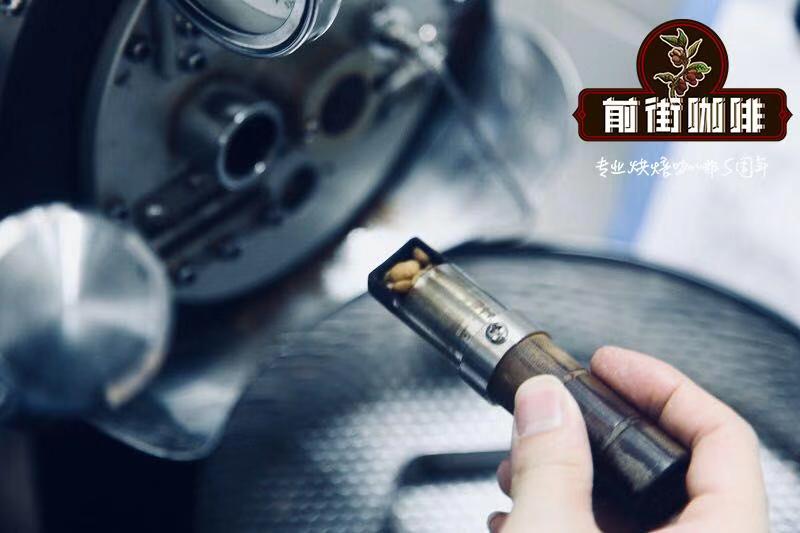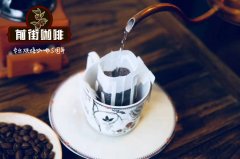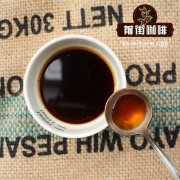Do you know what kind of coffee tastes best in Taiwan? what's the flavor of Taiwan alpine coffee?

Professional coffee knowledge exchange more coffee bean information please follow the coffee workshop (Wechat official account cafe_style)
The origin of coffee can no longer be investigated, but it was not until the 11th century that people began to use boiled coffee as a drink. Coffee is a hobby drink, with strong, light, sour and sweet flavor, each has its own preference. Today we are going to listen to the story of Taiwan coffee.
In fact, people who have really drunk "Taiwan coffee" will be touched by the multi-layered taste of Taiwan coffee. Apart from the rich oil and unique aroma of the coffee itself, the imported strong, pure and fragrant coffee is very rich, and it can be said to be the best in coffee. Taiwan coffee has been described as the "Rolls-Royce" of coffee!
Taiwan coffee is rising as a "black gold". The top roasted beans soar to NT $4000 or NT $5000 a pound, which is on a par with high-priced musk coffee. As long as it is crowned with "Taiwan coffee," the price will jump triple. In a coffee shop, a cup of Taiwanese coffee costs NT $200 to NT $300. "the most expensive roasted coffee is NT $4000 or NT $5000 a pound. High-priced musk coffee from abroad is priced at NT $6000 or NT $7000 a pound in department stores, while NT $3000 or NT $4000 can be bought through other channels.
Coffee in Taiwan is expensive not only because of low production and scarcity, but also because labor costs are too high. Female workers in Taiwan earn at least US $20 a day, while third World producing countries often earn less than US $1. This is also the reason why Taiwan coffee is only willing to import rather than buy local potatoes under the consideration of the cost of large coffee manufacturers.
Taiwan coffee used to be used by the emperor of Japan. Yang Fufu, director of supply and marketing of the Gukeng Township Peasants' Association, points out that Taiwan coffee has a hierarchical sense of non-bitterness, non-astringency, non-acidity, and warmth, and that people with high altitude have a particularly mellow taste and rich taste.
According to the data on the website of the Gukeng Township Public Office, at present, Taiwan's coffee producing areas include Nantou Huisun Forest Farm and Lugu, Yunlin Hebraoshan, Tainan Kuantou Mountain, Hualien Mizui Farm, Chiayi Alishan, and Pingtung Dawu Mountain, with an planting area of about 700 hectares and an annual output of about 100 metric tons, which is less than 1/10 of Taiwan's consumption, so the vast majority of coffee beans still rely on imports. Since the price of imported coffee beans is much lower than that of local coffee beans, which are rarely produced, it is very difficult for operators not to mix local potatoes with imported beans, while those who insist on not mixing one bean will be more difficult and lonely, but even more precious. Because the characteristics of coffee beans are actually the same as those of tea, coffee beans produced from each mountain have different flavors. If they are mixed with other imported beans or coffee beans at lower elevations, they will lose their original flavor. So really good tea and good coffee should be very pure.
The history of coffee in Taiwan can be traced back to the Qing Dynasty, when the Dutch introduced a small amount of coffee. During the Meiji period in Japan (1868-1912), coffee was planted in the Ogasawara islands, and then more widely in Okinawa and Taiwan, which was a Japanese colony at that time. However, the quality of the coffee produced in Taiwan is better than that of Japan because of its superior climate, latitude and soil. Before the revival of Taiwan coffee fever in 2003, a small number of interested people who did not give up Taiwan coffee retained the original coffee ── Arabica coffee from the Japanese occupation period, and these few supporters laid an important foundation for the comeback of Taiwan coffee today.
In Hebaoshan and Huashan, Gukeng Township, about 75 hectares of Arabica coffee trees were planted by economic farms during the Japanese occupation era. at that time, the coffee here was of particularly good quality and was paid tribute to the Japanese royal family, and the value of honor was equal to that of Taiwan juniper trees. More than 10 years ago, Zhang Laien returned to his hometown of Hebao Mountain and replanted coffee trees and opened Baden Coffee in Hebao Mountain. He was the first person to give Gukeng Coffee a name, and it was also the first coffee shop to commercialize "Taiwan Coffee."
Hebao Mountain and Huashan Mountain range from 300 to 600 meters above sea level. They belong to sandy soil and have good drainage. They are especially suitable for planting Arabica coffee trees. Ten years ago, Hebao Mountain planted only 2 hectares of coffee trees, but last year it soared to 100 hectares, mainly in Huashan, Guilin and Hebaoshan. Because Huashan and Guilin can overlook the Jiannan Plain, 50 or 60 scenic coffees have been opened on the hill. it has become the place with the most scenic coffee in Taiwan.
END
Important Notice :
前街咖啡 FrontStreet Coffee has moved to new addredd:
FrontStreet Coffee Address: 315,Donghua East Road,GuangZhou
Tel:020 38364473
- Prev

Where are the coffee producing areas in Colombia and how are the flavor performances
Professional coffee knowledge exchange More coffee bean information Please pay attention to Coffee Workshop (Weixin Official Accounts cafe_style) Colombia Coffee is one of the few single-item coffees sold under the name of the country in the world, and it is also a successful example of the successful combination of geographical identity and brand image. In December 2004, the Colombia Coffee Producers 'Association (FNC) sent a letter to Colombia
- Next

How did Taiwan's coffee culture develop to today? why is Taiwan's coffee so strong?
Professional coffee knowledge exchange more coffee bean information please follow the coffee workshop (Wechat official account cafe_style) 1. The birth of Taiwan's first coffee shop the earliest coffee shop in Taiwan can be traced back to the Japanese occupation period 1912-1926, opened by the Japanese in Taipei. The first coffee shop opened by Taiwanese was in Taiping Town, Taipei City in 1931 (now Taipei University).
Related
- Beginners will see the "Coffee pull flower" guide!
- What is the difference between ice blog purified milk and ordinary milk coffee?
- Why is the Philippines the largest producer of crops in Liberia?
- For coffee extraction, should the fine powder be retained?
- How does extracted espresso fill pressed powder? How much strength does it take to press the powder?
- How to make jasmine cold extract coffee? Is the jasmine + latte good?
- Will this little toy really make the coffee taste better? How does Lily Drip affect coffee extraction?
- Will the action of slapping the filter cup also affect coffee extraction?
- What's the difference between powder-to-water ratio and powder-to-liquid ratio?
- What is the Ethiopian local species? What does it have to do with Heirloom native species?

